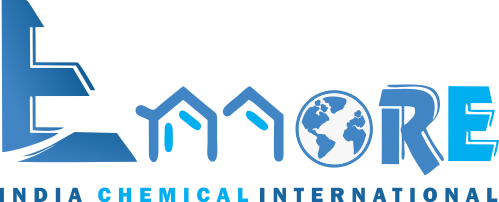Sodium Hypochlorite | Ennore Chemicals | chennai india Supplier
Sodium hypochlorite is a chemical compound with the formula NaOCl or NaClO, comprising a sodium cation (Na+) and a hypochlorite anion (OCl−or ClO−). It may also be viewed as the sodium salt of hypochlorous acid. The anhydrous compound is unstable and may decompose explosively. It can be crystallized as a pentahydrate NaOCl·5H2O, a pale greenish-yellow solid which is not explosive and is stable if kept refrigerated.
Sodium hypochlorite is most often encountered as a pale greenish-yellow dilute solution commonly known as liquid bleach or simply bleach, a household chemical widely used (since the 18th century) as a disinfectant or a bleaching agent. The compound in solution is unstable and easily decomposes, liberating chlorine, which is the active principle of such products. Indeed, sodium hypochlorite is the oldest and still most important chlorine-based bleach.
Uses
Bleaching
Household bleach is, in general, a solution containing 3–8% sodium hypochlorite, by weight, and 0.01–0.05% sodium hydroxide; the sodium hydroxide is used to slow the decomposition of sodium hypochlorite into sodium chloride and sodium chlorate.
Cleaning
Sodium hypochlorite has destaining properties. Among other applications, it can be used to remove mold stains, dental stains caused by fluorosis, and stains on crockery, especially those caused by the tannins in tea. It has also been used in laundry detergents and as a surface cleaner.
Its bleaching, cleaning, deodorizing and caustic effects are due to oxidation and hydrolysis (saponification). Organic dirt exposed to hypochlorite becomes water-soluble and non-volatile, which reduces its odor and facilitates its removal.
Disinfection
Sodium hypochlorite in solution exhibits broad spectrum anti-microbial activity and is widely used in healthcare facilities in a variety of settings. It is usually diluted in water depending on its intended use. "Strong chlorine solution" is a 0.5% solution of hypochlorite (containing approximately 5000 ppm free chlorine) used for disinfecting areas contaminated with body fluids, including large blood spills (the area is first cleaned with detergent before being disinfected). It may be made by diluting household bleach as appropriate (normally 1 part bleach to 9 parts water). Such solutions have been demonstrated to inactivate both C. difficile and HPV.["Weak chlorine solution" is a 0.05% solution of hypochlorite used for washing hands, but is normally prepared with calcium hypochlorite granules.
"Dakin's Solution" is a disinfectant solution containing low concentration of sodium hypochlorite and some boric acid or sodium bicarbonate to stabilize the pH. It has been found to be effective with NaOCl concentrations as low as 0.025%.
